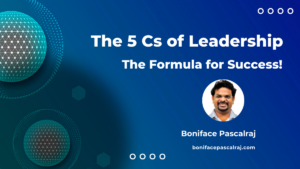In the unpredictable world of entrepreneurship, there are three essential pillars that set successful founders apart from the rest—clarity of goal, a strong sense of purpose, and the relentless discipline to take consistent action. These pillars serve as a guiding light, helping founders navigate challenges and make strategic decisions. Without them, even the most innovative ideas may flounder. Let us explore how these principles have driven the success of world-renowned companies and what lessons startup founders can glean from their journeys.
Clarity of Goal:
Having a clear and well-defined goal is crucial in entrepreneurship. Without it, it is easy to become distracted by short-term gains or sidetracked by external pressures. A clear goal provides direction and focus, acting as a roadmap for decision-making and prioritization. Jeff Bezos of Amazon, Elon Musk of Tesla, and Brian Chesky of Airbnb all started with clear goals that guided their companies to industry dominance.
- Amazon (Jeff Bezos): From the very beginning, Bezos had a crystal-clear goal—build an online bookstore that would eventually evolve into “the everything store.” His unwavering vision to dominate e-commerce guided Amazon’s early strategies and long-term planning.
- Tesla (Elon Musk): Musk’s goal has always been to accelerate the world’s transition to sustainable energy by creating electric vehicles for the mass market. This clear and ambitious goal continues to drive Tesla’s innovations.
- Airbnb (Brian Chesky, Joe Gebbia, Nathan Blecharczyk): The founders of Airbnb wanted to disrupt the hotel industry by creating a platform where people could rent out their homes to travelers. This clear goal drove their product development and growth strategy.
Strong Purpose:
Purpose is the fuel that drives persistence. When founders or individuals connect deeply with their purpose, it becomes the underlying motivator that sustains them through tough times. Purpose helps entrepreneurs maintain focus on their long-term vision, even when the journey gets difficult.
- Amazon: Bezos was deeply driven by the belief that the internet would revolutionize retail. This strong sense of purpose anchored his decision-making, especially during the company’s early struggles.
- Tesla: Musk’s purpose extends beyond profit—he is driven by a mission to make the world a better place through sustainable energy solutions. This commitment to environmental sustainability gives Tesla its clear sense of purpose.
- Airbnb: Chesky, Gebbia, and Blecharczyk believed that travel should be more personal, affordable, and accessible. This purpose helped them stay connected to their users and consistently improve the Airbnb platform.
Consistent Action with Self-Discipline:
Even the most brilliant ideas will fail without steady, disciplined execution. Consistency bridges the gap between vision and achievement, and self-discipline ensures that founders continue pushing forward, even when motivation is low or challenges are high. The stories of Amazon, Tesla, and Slack demonstrate how critical consistent action and self-discipline are to success.
- Amazon: Bezos’ relentless focus on customer satisfaction and operational efficiency drove Amazon’s rise, despite facing significant early losses.
- Tesla: Musk’s discipline and willingness to work long hours, make difficult decisions, and stay focused on Tesla’s goal helped the company survive near-bankruptcy and become a market leader.
- Slack (Stewart Butterfield): Slack’s success was not instant. Butterfield and his team worked tirelessly, iterating on the product based on user feedback until it became the dominant tool for workplace communication.
Case Studies:
The journeys of successful entrepreneurs reveal a simple yet powerful formula for achieving success—clarity of vision, purpose-driven action, and relentless consistency through self-discipline.
- Amazon (Jeff Bezos): His vision to dominate e-commerce, driven by his belief in the internet’s potential, fueled Amazon’s rise. Self-discipline allowed Bezos to focus on long-term growth, even when faced with early setbacks.
- Tesla (Elon Musk): Musk’s clear goal of promoting sustainable energy and his purpose-driven mission allowed Tesla to overcome financial struggles and redefine the electric vehicle industry.
- Airbnb (Brian Chesky, Joe Gebbia, Nathan Blecharczyk): The founders maintained their purpose of making travel more accessible, even when faced with financial challenges. Their consistent action led to a platform that has disrupted the global hospitality industry.
- Slack (Stewart Butterfield): Butterfield’s discipline to continually refine the product based on user feedback has made Slack the go-to tool for workplace collaboration.
- Dropbox (Drew Houston): Houston’s clear goal of making file sharing seamless and accessible, combined with his discipline to refine Dropbox’s technology, helped Dropbox gain millions of users through growth hacking techniques like its referral program.
Key Takeaways for Startup Founders:
Startup founders can take inspiration from these entrepreneurial journeys. They didn’t rely on fleeting motivation or luck. Instead, they had a clear goal, a deep connection to their purpose, and the self-discipline to take consistent action—even when things were tough.
The formula for success is simple yet powerful: clarity of vision, purpose-driven action, and relentless consistency. By adopting this mindset, founders can overcome obstacles, stay focused on their long-term goals, and build a sustainable path to success.
As a founder, remember that success doesn’t come overnight. By clarifying your goals, staying connected to your purpose, and consistently taking disciplined action, you can navigate the challenges of entrepreneurship and lead your startup to success.



